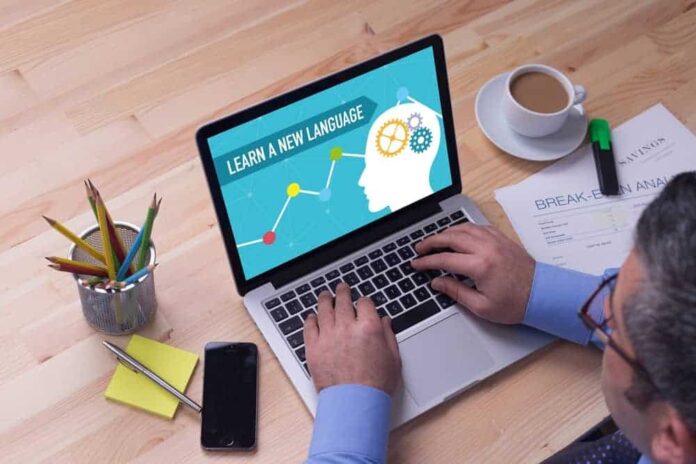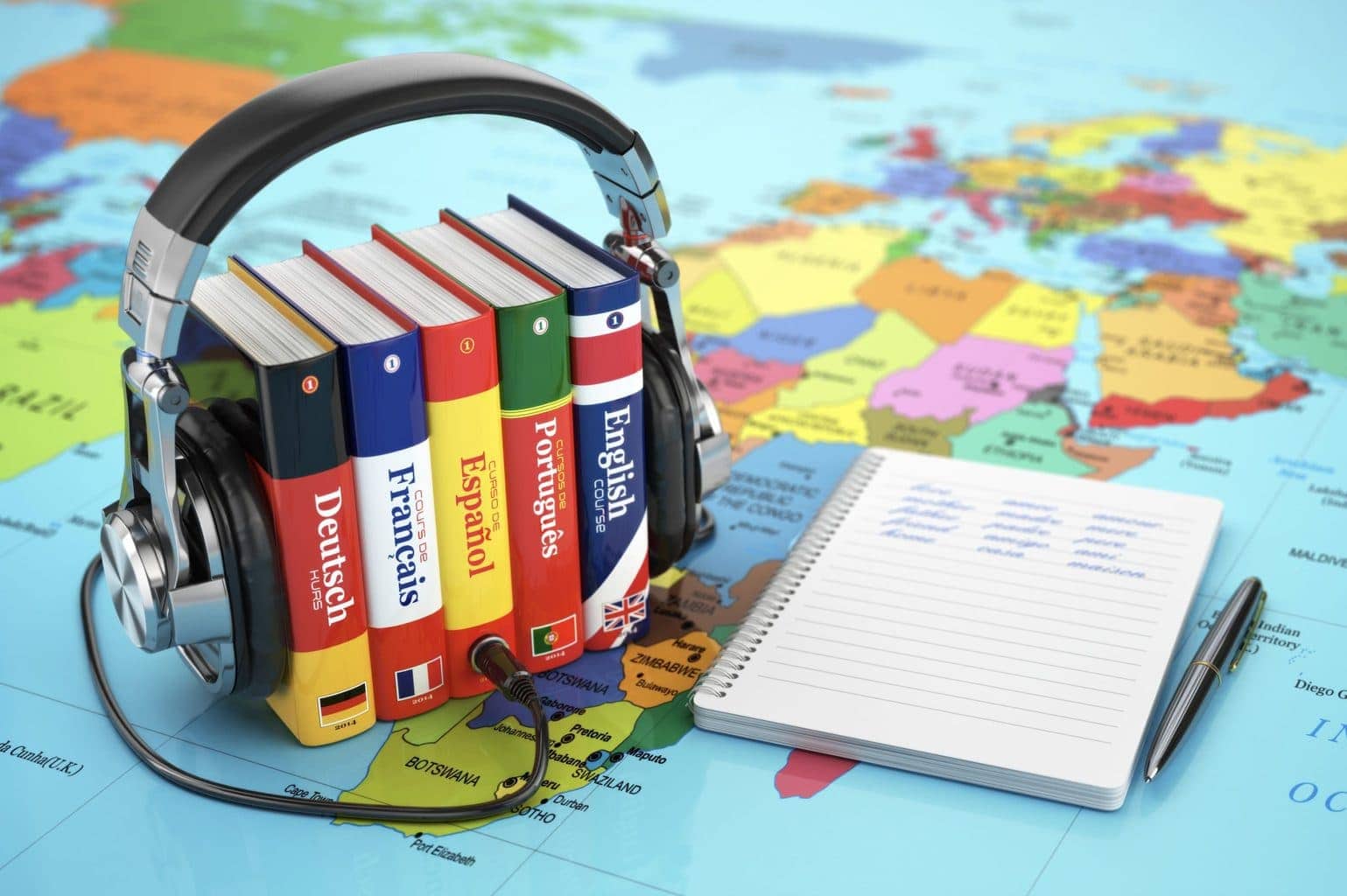Learning a new language can be an exciting adventure, especially when tied to travel plans. But when is the best time to pick up that new tongue?
Should you study before you go, or immerse yourself in the local dialect while you’re traveling? Let’s chat about the pros and cons of both approaches to help you make an informed choice.
The Case for Learning Before You Travel
Confidence and Comfort

One major advantage of learning a language before traveling is the boost in confidence it gives you.
Arriving in a new country where you can greet locals, ask for directions, and order food in their language makes the initial experience smoother and more enjoyable. You’ll feel less like an outsider and more like a savvy traveler ready to take on new experiences.
For those looking to enhance their language skills before traveling, DIALOG Sprachreisen offers immersive language travel experiences that can boost your confidence and comfort when navigating new environments.
More Meaningful Interactions
Having some language skills beforehand allows for more meaningful interactions right from the start.
Whether you’re chatting with a street vendor, engaging in small talk with a taxi driver, or making friends at a hostel, knowing the language can make these moments richer and more memorable.
Better Preparation for Emergencies
Emergencies can happen anytime, anywhere. Knowing the language before you go means you’ll be better prepared to handle unexpected situations, from medical emergencies to dealing with lost luggage. It’s reassuring to know you can communicate effectively if things go awry.
A Head Start on Cultural Immersion
Learning the language before you travel also gives you a head start on understanding the culture.
Language and culture are deeply intertwined, and by familiarizing yourself with common phrases, idioms, and customs, you’ll gain insights that enhance your travel experience.
The Case for Learning While Traveling
Real-World Practice

There’s no better classroom than the real world. Immersing yourself in the language while surrounded by native speakers accelerates your learning.
You’ll pick up on slang, colloquial expressions, and the natural rhythm of the language that textbooks can’t teach.
Motivation and Necessity
Being in a country where the language is spoken every day provides strong motivation. When you need to use the language to buy groceries, navigate public transport, or make friends, you’ll be more driven to learn and remember new words and phrases.
Learning in Context
Contextual learning is powerful. When you’re physically present in the environment where the language is spoken, words and phrases become linked to sights, sounds, and experiences.
This context aids in memory retention and makes learning more intuitive and enjoyable.
Building Connections with Locals
Attempting to learn the language while traveling shows locals that you respect their culture and are making an effort to connect.
This effort can break down barriers and open doors to unique experiences and friendships that you might not have otherwise.
A Hybrid Approach
The Basics Before You Go

Consider learning the basics before you travel. Familiarize yourself with common phrases, greetings, and essential vocabulary.
Apps like Duolingo or Rosetta Stone can be great starting points. This foundation will help you navigate initial interactions and ease the transition into a new linguistic environment.
Intensive Learning on the Road
Once you arrive at your destination, dive deeper into the language. Enroll in a local language school, take private lessons, or participate in exchange programs.
Engaging in daily practice with native speakers will refine your skills and boost your confidence.
Use Technology to Your Advantage
Technology can be your best friend when learning a language. Use translation apps like Google Translate for quick help, there are learning apps for structured practice, and podcasts or YouTube channels to hear the language in different contexts. Combine these resources with real-world practice for the best results.
Practical Tips for Language Learning
Set Realistic Goals
Set achievable goals for your language learning journey. Whether it’s mastering basic greetings before you leave or aiming to have a simple conversation within a month of your trip, having clear objectives will keep you motivated and focused.
Practice Regularly
Consistency is key. Dedicate a set amount of time each day to practice, whether it’s 15 minutes or an hour. Short, regular practice sessions are more effective than cramming.
Engage with Locals
Don’t be shy about using the language with locals. Most people appreciate the effort, even if you’re not perfect. Practice with shopkeepers, tour guides, or fellow travelers. The more you use the language, the more natural it will feel.
Embrace Mistakes
Making mistakes is part of the learning process. Don’t be afraid to mess up or sound silly. Every mistake is an opportunity to learn and improve.
Use Media to Your Advantage
Consume media in the language you’re learning. Watch local TV shows, listen to music, or read books and newspapers. This exposure will help you pick up nuances and improve your comprehension.
Keep a Language Journal
Maintain a journal of new words, phrases, and expressions you learn each day. Review and use them in sentences to reinforce your memory.
Overcoming Common Hurdles
Feeling Overwhelmed

It’s easy to feel overwhelmed when learning a new language, especially if you’re doing it while traveling. Break your learning into small, manageable chunks. Focus on mastering a few phrases or words each day rather than trying to learn everything at once.
Pronunciation Challenges
Pronunciation can be tricky, but it’s crucial for effective communication. Listen carefully to native speakers and mimic their sounds. Use language apps that offer pronunciation practice and don’t hesitate to ask locals to correct you.
Grammar Woes
Grammar can be one of the most challenging aspects of learning a new language. Instead of memorizing rules, try to pick up grammar naturally through context and usage. Pay attention to sentence structures in conversations and written materials.
Maintaining Motivation
Keeping motivation high is crucial for language learning. Set milestones and reward yourself for reaching them. Whether it’s a small treat or a day trip to practice your new skills, rewards can keep you energized and focused.
Final Words
Whether you choose to learn a language before traveling or while on the road depends on your personal preferences, goals, and travel plans. Each approach has its own set of benefits and challenges. You might find that a combination of both methods works best for you.
Remember, learning a new language is a rewarding experience that enriches your travel adventures and helps you connect with people and cultures on a deeper level. So, start practicing, pack your bags, and get ready to explore the world with a fresh linguistic perspective!







